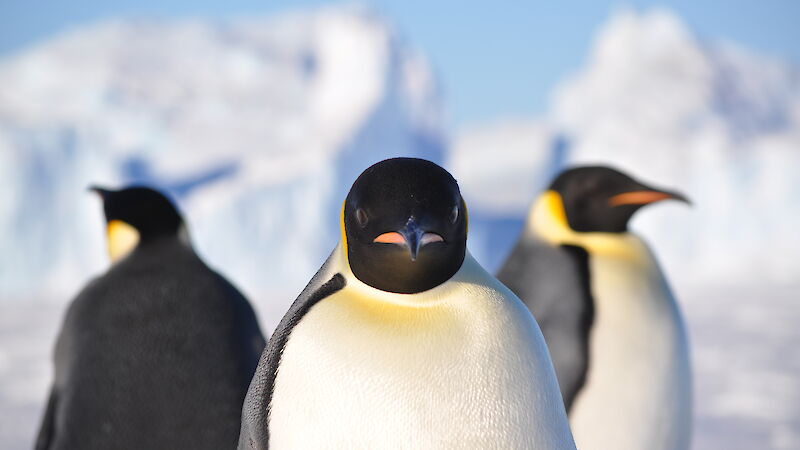New population modelling by a United States study forecasts that emperor penguins will become "quasi-extinct" by 2100 if sea ice declines at projected rates.
The report, "The call of the emperor penguin: Legal responses to species threatened by climate change", was published this week in Global Change Biology.

The study was led by the Woods Hole Oceanographic Institution and authored by 14 international scientists, one of whom is an emperor penguin expert with the Australian Antarctic Division (AAD).
AAD seabird ecologist Dr Barbara Wienecke said the most significant threat for emperor penguins is climate change, because the vast majority of colonies are located on the Antarctic sea ice.
"Emperor penguins depend on the sea ice for their long-term survival. Without a breeding platform they have nowhere to go, and it is crucial that this ice platform is available for the duration of the breeding period," said Dr Wienecke.
"If global warming alters the patterns of ice break-out or stability, the ice may disappear before the chicks are ready to go to sea."
"Sea ice is also critical for prey species of emperor penguins such as krill. Changes in the sea ice can affect their abundance," she said.
The modelling presents the projected dynamics of all known emperor penguin colonies under different greenhouse gas emission scenarios, which for the first time includes the effects of extreme climate events based on the observational satellite record of colonies.
The study shows that under current emission rates, emperor penguin population numbers will diminish slowly until about 2040.
However, if emission rates are not reduced, populations will decline more rapidly as sea ice coverage becomes unusable, with emperor penguins becoming quasi-extinct by 2100 as 98 percent of colonies would disappear.
Dr Wienecke said that of around 60 known emperor penguin colonies in Antarctica, 22 are located within Australia's areas of operation in east Antarctica.
Australia is currently involved in an international process to review the conservation status of emperor penguins in Antarctica and mechanisms for their protection.
This scientific review would inform the possible designation of emperor penguins as a 'specially protected species' under the Protocol on Environmental Protection to the Antarctic Treaty (Environmental Protocol).
The Scientific Committee for Antarctic Research, using data from Dr Wienecke and other AAD scientists, is advising the Committee for Environmental Protection established under the Environmental Protocol.






